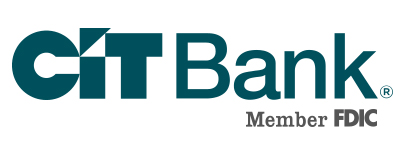Pros:
- No minimum opening deposits
- Interest rates not tiered
- ATM fee reimbursement
- Can open accounts online
Cons:
- Max-Rate checking account has a fee
- Limited personal accounts offered
- Low interest rates on accounts
- Business accounts limited
Pros:
- Accounts offer competitive rates
- Low opening amounts and no monthly fees
- Variety of savings accounts offered
- Funds savings account
Cons:
- Must join the credit union first
- No ATM fee reimbursement
- Only one checking account offered
- CD early withdrawal penalty can be high
E*TRADE accounts do not have set amounts required to open accounts. You can open the Premium savings, Max-Rate checking, and E*TRADE checking with any amount. To avoid a monthly fee may require a set balance, but not to open the account.
The interest rates for E*TRADE Bank accounts are not tiered. Any balance earns the most competitive interest rate. The highest rates are not competitive with other online-only accounts. But any balance earns the best rate.
E*TRADE Bank accounts offer unlimited ATM fee reimbursement. There are no ATM fees for money withdrawn from ATMs across the nation. To get a refund, you must meet certain qualifications. If you qualify for the refund, the money should be in your account by the end of the day of the ATM transaction. Not all accounts offer ATM fee refunds.
You can open E*TRADE accounts online. They are available for anyone to open across the United States. You can transfer money from external bank accounts into your E*TRADE account.
The E*TRADE Max-Rate checking account has a monthly fee. The fee is $15 a month. Waive the fee by keeping a set account balance in one account or an average in multiple accounts. Having a direct deposit over $200 waives the fee. Making a set amount of trades can also help waive the fees.
The types of personal accounts offered through E*TRADE Bank are limited to new customers. Those accounts include a savings account and two checking accounts. More accounts may be available once you become a customer.
The E*TRADE Bank accounts earn interest, but the rates are low. The interest rates are not competitive with other online accounts. Any account balance earns the most competitive rate. Even the highest rates are not competitive with other online accounts.
E*TRADE offers limited accounts for small businesses. They do not offer traditional accounts for small or commercial businesses. The accounts offered to small businesses include retirement accounts.
Accounts at CommunityWide FCU offer competitive interest rates. The rates are competitive with other online accounts. CommunityWide rates are much higher than typical bank rates. Their rates are not tiered. Any balance above the required amount earns competitive interest rates.
CommunityWide accounts have low opening required amounts. The savings accounts require $5 to open. The checking account requires $15 to open. The CD terms each require $1,000 to open. The CommunityWide FCU checking and savings accounts do not have a monthly fee. If you only open a savings account and the account does not have any activity, there is a $5 dormant account fee. That fee applies for each month with no activity.
CommunityWide offers a wide variety of savings accounts. The accounts offered include:
- Personal savings account
- High-yield savings account
- Funds savings account
- CD terms from six months to five years
- IRA accounts
A Funds savings account is available through CommunityWide FCU. This account acts as a savings account but earns a higher interest rate. Members can only withdraw money deposited in the account at specific times. You can choose whether to withdraw the money monthly or quarterly. Money can be deposited into the Funds savings account anytime.
Before you can open an account with CommunityWide, you must become a member of the credit union. To be eligible to join, you must have worked for a certain company or be a spouse of someone who has. Members of certain organizations are eligible. Immediate family members of CommunityWide members qualify to open an account. Once you qualify, you must show a valid government-issued ID and your Social Security Number.
CommunityWide Federal Credit Union does not offer ATM fee reimbursements. They offer over 30,000 ATMs free for members to use. If you make a transaction with another ATM, not in their network, you may be charged a fee. CommunityWide will not reimburse you for those fees.
CommunityWide FCU offers many accounts, but only one checking account. The checking account earns interest for balances over $1 and requires $15 to open. It is the only checking account available through CommunityWide FCU.
The early withdrawal fee for CommunityWide FCU CDs can be higher than other CD fees. CommunityWide FCU uses a specific formula to determine the penalty. First, they take the withdrawn amount times the remaining days at twice the current APR. They then divide the amount by 365. There is not a set penalty based on term length.


